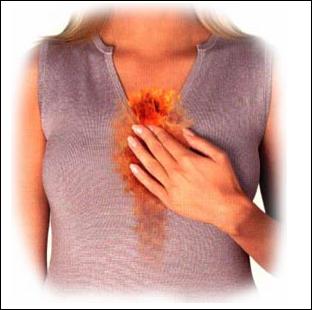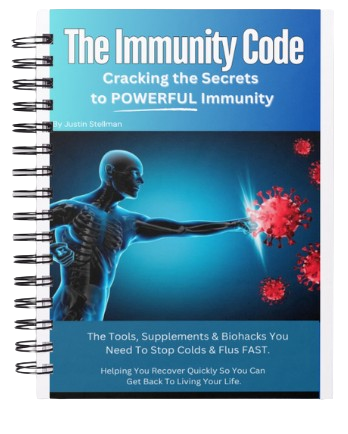
Anyone can get heartburn. It is as common as the cold. According to the Get Heartburn Smart booklet published by the National Heartburn Alliance, “Twenty-five million adults experience heartburn on a daily basis.”
Aside from the burning sensation in the chest, the heartburn sufferer may experience:
- Upper abdominal pain (usually comes after meals)
- Flatulence and belching (gas)
- Abdominal distention after eating
- A sense of fullness after eating
Simple heartburn may be diagnosed on the basis of symptoms alone. However, your doctor may want to perform tests – upper GI series or endoscopy to be sure and to rule out other conditions. To distinguish heartburn from angina (heart pain), a Bernstein test (acid perfusion) may be performed. This test involves introducing first a saline solution, then a weak hydrochloric acid (HCl) solution into the esophagus through a tube inserted into the nasal cavity. Theoretically, if pain is felt with the HCl but not with the salt, it is indicative of reflux. An EKG and stress test, as well as a 24-hour pH probe, may also be used to distinguish heartburn from angina.
The hallmark of standard medical treatment is the routine use of antacids to neutralize or suppress stomach acid production to reduce symptoms of heartburn. The thinking with regard to use of such drugs is that by reducing acid production or neutralizing it, irritation to the esophagus will be minimized. Such thinking has given rise to widespread use of antacid drugs. Unfortunately, little press has been given to the long term side effects of continual use of such potent drugs.
These acid-blocking drugs may be divided into two categories, acid neutralizers and acid suppressors. Some acid-neutralizing drugs contain aluminum which poses an additional problem, as this metal has been shown to be a possible cause of such brain dementias as Alzheimer’s disease. It would therefore be advisable to avoid long term use of aluminum-containing antacids, which include Duracid, Tempo, Maalox, Mylanta, Gelusil, Gaviscon, Amphojel, and Riopan.
While acid-suppressing drugs may offer temporary relief of the symptoms of heartburn, antacids create many more problems. By alkalizing the lower stomach (antrum), the hormone gastrin is released, causing a huge rebound output of acid, thereby requiring more antacids to neutralize the increased acid output in response to the gastrin. Eventually, the partial cell mass that manufactures the acid ceases to function normally, resulting in low stomach acid (hypochlorhydria) or worse, no stomach acid (achlorhydria).
The following are guidelines for natural symptom relief of heartburn:
- Drink a glass of room temperature water.
- Try ginger or slippery elm tea.
- Chew deglycyrrhizinated licorice (DGL) between meals.
- Take probiotics (I recommend at least 15 billion cultures per capsule).
- Drink aloe vera juice or syrup (about 5 ounces) between meals daily.
The formula given below could be very beneficial in relieving the symptoms of heartburn. This combination naturally acts as a powerful antacid. It is totally natural and is a better choice than taking an over-the-counter drug or antacids such as Maalox, Mylanta, Tums, Rolaids, etc. and anti secretory drugs like Tagamet, Zantec, Pepcid, etc. This formula, which is a combination of fava bean flour and ellagic acid, provides nutritional support for the upper GI tract while relieving the symptoms of heartburn, “sour stomach”, and dyspepsia. This formula should be in chewable form and contain the following:
- Ellagic acid, a powerful antioxidant found in several fruits (especially raspberries and pomegranates) can counter the oxidative stress caused by H. Pylori. It also has anti-inflammatory properties and can temporarily inhibit stomach acid.
- Fava bean flour buffers stomach acid without producing side effects. Used in combination with ellagic acid, it provides nutritional support for upper digestive function, as well as long-lasting digestive support through extended acid section modification.
If you choose to take an over-the-counter antacid, don’t make it a habit. A trial of baking soda with water, if it eliminates the heartburn, does suggest that acid reflux may be part of your problem. Try to get to the source of your problem with diet, lifestyle and stress reduction.
 Brenda Watson, C.N.C., is a New York Times bestselling author, PBS health educator and digestive care expert, and is considered one of the foremost authorities today on natural digestive health and the gut connection to total-body health. For the past 20 years, Brenda has been sharing her own journey to health through her past struggles with digestive issues, weight gain, and chronic fatigue and inspiring millions with the information they need to live vibrant, healthier lives.
Brenda Watson, C.N.C., is a New York Times bestselling author, PBS health educator and digestive care expert, and is considered one of the foremost authorities today on natural digestive health and the gut connection to total-body health. For the past 20 years, Brenda has been sharing her own journey to health through her past struggles with digestive issues, weight gain, and chronic fatigue and inspiring millions with the information they need to live vibrant, healthier lives.


